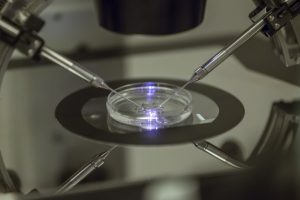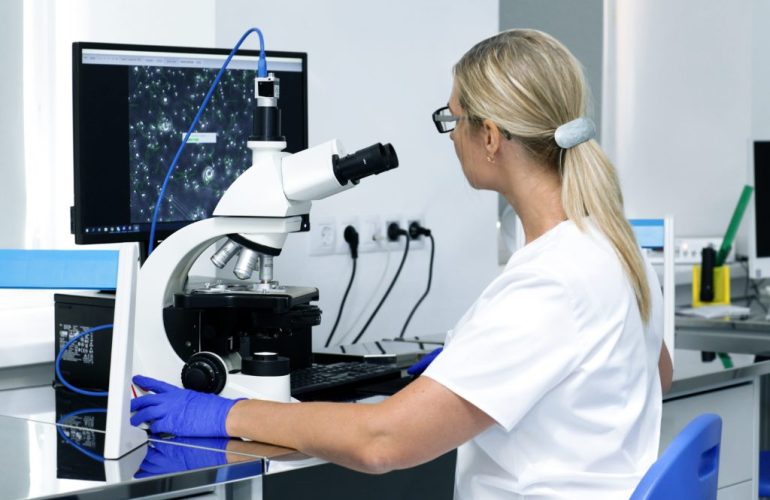What is In Vitro Fertilization (IVF)? How does IVF Work?
In Vitro Fertilization (IVF) is one of the most successful fertility treatments, an assisted reproduction method that takes a couple’s sperm and egg, to be fertilized in a controlled manner in a lab setting. The male participant provides the clinic with a sperm sample, and through Oocyte Pick-up (OPU) the female’s eggs are collected, so that the ones that have the best quality are used for the fertilization procedure.
Usually, the more eggs that are collected, the couple have a better chance of successful fertilization and formation of an embryo. Patients are given regular blood tests and ultrasounds to monitor their fertility, and hormone injections to accelerate the maturation of eggs.
The sperm is injected into the egg through a thin needle. The sperm is mixed with the eggs and stored in a laboratory dish to encourage fertilization. Sperm may also be injected directly into an egg, which is called Intracytoplasmic Sperm Injection (ICSI).
Once the embryologist states that the embryos are ready, an embryo transfer procedure takes place, and is placed inside of the female’s uterus by the doctor so that it can become implanted, and the pregnancy can begin.
In Vitro Fertilization is a first line treatment for certain conditions, including endometriosis.
Risk Factors for In Vitro Fertilization (IVF)
The success rate of IVF depends on many factors, including the age of the couple and the condition of their ovaries, as well as the quality of the sperm. Fertilization may not occur for a variety of reasons, such as poor response to medications or tubal damage. In addition, poor quality embryos may also not grow according to how they should in a specific timeline, making the implantation unsuccessful. Other risk factors can include advanced maternal age, pregnancy with multiples, or high blood pressure. However, even if you are healthy, you should discuss all risks before starting IVF. For example, you should discuss with your doctor the pros and cons of the procedure with your doctor.
What to Know Before IVF?
Before you begin the procedure, the doctor will give you a list of medication and instructions on how to take them prior to arriving to Crown IVF clinic. Before your embryo transfer, your doctor may prescribe progesterone supplements or estrogen supplements. These hormones help the embryo grow and increase its chances of implantation. The dose you are given will depend on your age, AMH level, and your response to ovarian stimulation.
The patient is given medication to induce ovulation. The drugs cause the body to produce more eggs than normal, increasing the chances of successful fertilization. The drugs are also used to induce superovulation, where the body produces more than one egg per month. It is also important to note that IVF does not produce the same result in every woman.
Before starting a cycle, your doctor will perform several tests to evaluate your ovarian reserve. This may include a Sonohysteroscopy, which involves inserting a thin telescope into your uterus to examine its structure. During the IVF cycle, you may be given several embryos. Depending on your age, your doctor may decide to transfer as many as five to six embryos. However, if you have a low ovarian reserve, your doctor may opt to use donor eggs.
After egg retrieval, you will be given the choice of implanting one embryo or freezing the remainder. This procedure is straightforward and requires no anesthesia. After the transfer, you’ll be asked to return for blood pregnancy tests every two weeks. The resulting pregnancy will be monitored closely for eight to ten weeks, during which additional blood tests will be performed.





